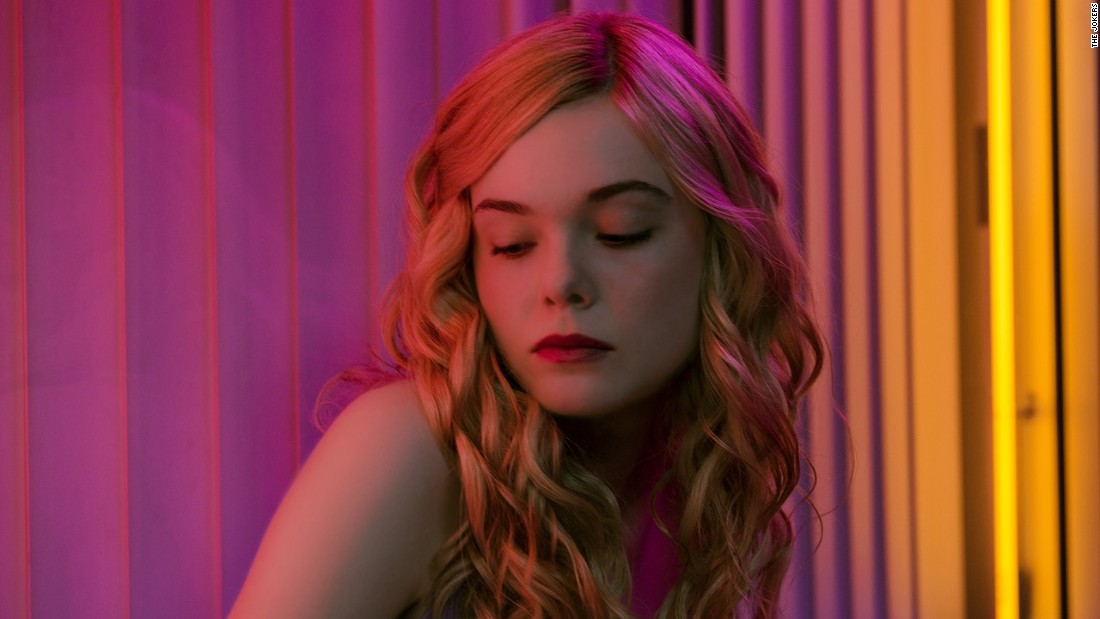What is beauty? Alluring, definitely. Ephemeral, perhaps. But deadly? Certainly, according to director Nicolas Winding Refn.
Refn's tenth feature film "The Neon Demon" sees a return to LA, five years after he lit up Cannes with Ryan Gosling vehicle "Drive".
It follows the story of elfin model Jesse (Elle Fanning), another outsider looking for belonging in an isolating city. Taken under the wing of those within the fashion industry, she soon learns it's not an environment where morals survive for long.
Yet to be unleashed on the public, the film has already proved divisive. At Cannes it was booed at the press screening but received a seven-minute ovation at its premiere -- all within the space of a day. Featuring cannibalism, necrophilia and rape, there have been calls for it to be censored by some voices within the media.
The director, speaking in London ahead of its July 8 release, appears delighted.
"There will always be an opinion, and I'd rather have that than nothing... If you don't have an emotional impact, what's the point of sitting through it?"
"The Neon Demon" tracks Jesse's progress from unsigned aspirant to show-closing catwalk model. However, despite appearances, this isn't a film about the fashion industry.
"I was interested in beauty and the obsession with beauty, and not one subject," he explains. "The fashion world becomes the background, but it's so dominating and glamorous and vulgar."
Not that the director will outright criticize the industry -- he has directed shorts for Gucci, after all. For Refn, vulgar is more of a compliment.
"Having worked in the fashion industry I found it absolutely wonderful. It's melodramatic, emotional; a little bit creepy but also very campy. It's just great entertainment.
"By no means would I ever start to criticize the fashion industry, because I'm equally fascinated by it, and love it as much as I fear it."
Using fashion as a backdrop, the director explores beauty and its commodification. The characters are a set of made-to-measure archetypes: the predatory assistant-come-sage; vampiric models; an aloof photographer.
Fanning's Jesse is a naive 16-year-old, aware of her beauty but forced by the industry to confront and embrace it. Her journey, Refn argues, is not unlike that of Narcissus, a parable to which he continually refers.
"I think that one of the final frontiers of man's evolution is the acceptance of themselves and all their sins and impurities and desires,"he explains. "One of the aspects of this evolution is narcissism, because it's a stage we all go through."
"What I find interesting -- and fantastic in a way -- is this new acceptance that narcissism is not necessarily a bad thing. It's no longer taboo.
"The world is sort of adapting to individuals being so much more focused, and narcissistic and vain, and that's why beauty, while such a complex phenomenon, is so shallow... It's something so universal, and yet very frightening and very beautiful."
Though there have been suggestions that his film could be seen as misogynistic, with nudity heavily featured and focused, as per the modeling industry, with the female form -- the director disagrees.
"I believe that women are a much more powerful, greater, important specie," says the director, suggesting they are his target market for "The Neon Demon". The film is dedicated to his wife, and he talks with an air of curiosity about his daughters, "turning into teenagers, [when] the resurrection of narcissism and the Id and all those things start to appear."Moreover, he sees Jesse as a 16-year-old, idealized version of himself.
"For me it's just following what I find interesting, what I would like to be," he explains. "The work between Elle and I, I said to her 'I'm not a 16-year-old girl, I'm a 44-year-old man who would like to be you, would like to become you, but you also have to be me, so we have to go on this journey together'."
So fixated is the director with the course charted through production, Refn goes as far as to say the end result, what we see on screen, barely registers.
"I don't have any interest in the result," he says. "The process is where you live."
(CNN)
www.ann.az
Follow us !











